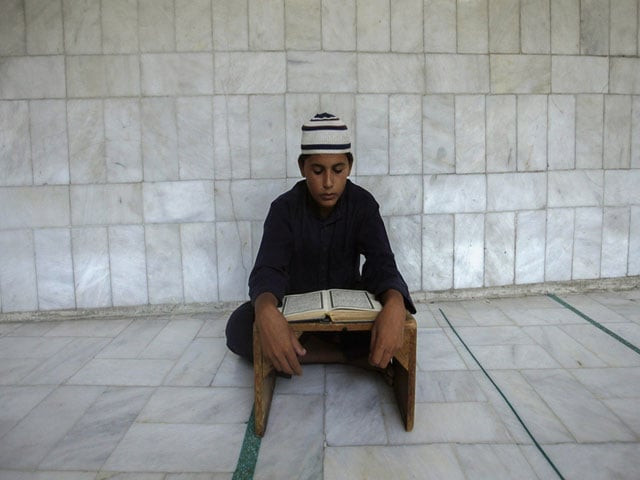Promoting peace: Students’ interaction ‘can pave way for social harmony’
Initiative aims to end misperceptions among children of different backgrounds

PHOTO: REUTERS
Above all, they should be taught how to talk to each other, rather than talking at each other.
These were some of the findings of the engagement of 150 university and madrassah students from Multan, in a series of five youth camps, organised by Pakistan Institute for Peace Studies (PIPS), an Islamabad-based think tank.
Students between 18 to 25 years-of-age were advised to remain sceptical of news reports and avoid fake news online. Fake news, it was noted, produces hate speech. One of the best ways to stop hate speech online is to train students in checking the authenticity of reports.
Being better equipped will lead to being better informed, a sure remedy for countering lies and hate.
The camp, consisting of learning workshops and a day-long study tour, was designed to enable students of madrassahs and universities, shed their mutually-held misperceptions and stereotypes about each other. During the interactions, students admitted that the two have different perceptions of the world around them.
What was striking was that students did not interact much even within the same group. Seminary students, because of studying in sect-based institutions, do not intermingle with students of other sect’s seminary. So much so that while a madrassah student might have visited a university, he will be more reluctant to step into the seminary of another sect. The study tour helped them overcome this unease. Madrassahs should be encouraged for cross-madrassah interactions.
Similarly, in public-sector universities, students often come from different regions, speaking different languages. Instead of letting this diversity plunge into discrimination and violence at campuses, universities should celebrate the blending in of different ethnicities, such as through cultural days.
Renowned experts and scholars who spoke in the youth camp included religious scholar Amanat Rasool; religious scholar Ammar Khan Nasir; play writer Shahid Nadeem; columnist Yasir Pirzada; analyst Wajahat Masood; literary critic Amjad Tufail besides other researchers. Speakers taught students that having differences is not wrong.
“Human civilisations have progressed on the basis of differences.”
But the way differences are expressed can have repercussions.
Students asked about avoiding tussles amid differences. Speakers suggest dialogue as a solution, which involves the exchange of ideas with each other, produces an amiable environment, rather than resorting to monologue contests, where the intention is to win over the other and prove one’s point without actually listening to or understanding the others. PIPS noted that students should be taught about conducting a dialogue in educational establishments.
Published in The Express Tribune, October 15th, 2018.



















COMMENTS
Comments are moderated and generally will be posted if they are on-topic and not abusive.
For more information, please see our Comments FAQ